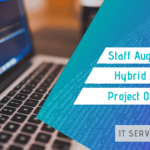With Work-From-Home being the new normal, many things about the workplace have changed. We have seen a huge shift in the work inputs but employers still need the best output.
So, all the organizations working remotely are seeking the best possible ways to manage the performance of their remote teams. Earlier it was easier for the managers to take a sneak peek at their employees’ screens and keep track of their work and give feedback.
They were able to walk to the employees and ask questions and observe their body language to get the idea of their behavior towards work and the company. But things are all different when it comes to remote work.
Being an employer you might be facing difficulty in evaluating employees’ work progress or might just be waiting for their response for a long time. It’s not easy to see the progression of tasks unless you check the reports at the scheduled time.
It becomes difficult for employees to maintain team coordination without clear descriptions and working from different time zones.
The switch from traditional to remote performance management requires extensive coordination and collaboration between HR and Operations teams to make sure there is no negative impact on employee productivity.
So, this is the time when managers and HR teams need to develop the skill of leading remotely. For that, here are some effective ways to foster remote performance management.
Table of Contents
BEST PERFORMANCE MANAGEMENT PRACTICES FOR REMOTE TEAMS:
CLEAR GOALS AND EXPECTATIONS

Employees should be clear of their goals and what is expected from them. If they are aware of it, only then they could align their task and track their performance in accordance.
When the employees are not in the office and they cannot walk to their colleagues or seniors to resolve the doubts regarding their tasks, then the only thing that could help them is to have a proper direction and a clear picture of their expected outcomes.
TRACKING GOALS COMPLETION

Once the goals are set, it’s extremely important to track employees’ performance towards meeting those goals. For that, you can divide the goals on weekly basis and take progress reports from the employees every week.
This would help in identifying the progress and lag in the performance of all the employees. You can take a quick daily meeting and discuss the ongoing tasks so as to keep transparency between managers and their teams.
ASSESSING NON-PERFORMERS

Just like the traditional way, there should be performance reviews. It helps you find out the non-performers so that you can interact directly with them.
Take some time and find out the reasons why they are not able to perform well and deliver the task on time. Try to communicate and understand the issue and discuss and implement the ways of improvement.
Also, make sure to provide a sufficient amount of coaching to non-performers and enhance their skills to make them more competent.
APPRECIATE STAR PERFORMERS

Don’t just focus on the non-performers and getting the work done, but also recognize the best performers. Identify the ways and means by which your employees are contributing to the company and appreciate them for their work.
This will boost the morale of your employees and help you in retaining the best talent in these tough times. This will also be built trust among other employees and maintain a positive remote work culture.
EQUIP EMPLOYEES

All of us had to shift our work culture and make so many changes. So, it’s really important for employers to make sure that their employees are well equipped with all the technical needs.
And it’s not just the equipment or tools that are required during work from home but the knowledge to operate them too. So, it’s important to acknowledge the needs of your employees and provide them the tools and training required in order to communicate and work effectively.
Also Read: Why Organizations Should Hire Remote Developers
THE FINAL VERDICT
Performance management measures for remote workers need to be forethought and then smartly executed. The overall remote performance management depends on settings goals and evaluating the performance with constant efforts.
Not just the evaluation but discussion, feedback and appreciation is also equally important. Managers should collaborate with team members to ensure team coordination and also equip them with all the resources needed to execute the work.
I am Kritika Sharma, Sales & Marketing Specialist at Offshore IT Staffing.
Being a technophile and marketing enthusiast, I feel exhilarated to work in an IT company.
I have a passion for blogging about technology, food, and nature. I love to play sports and have good skills in Table Tennis. I like to explore the beauty of nature and meld it into words.





